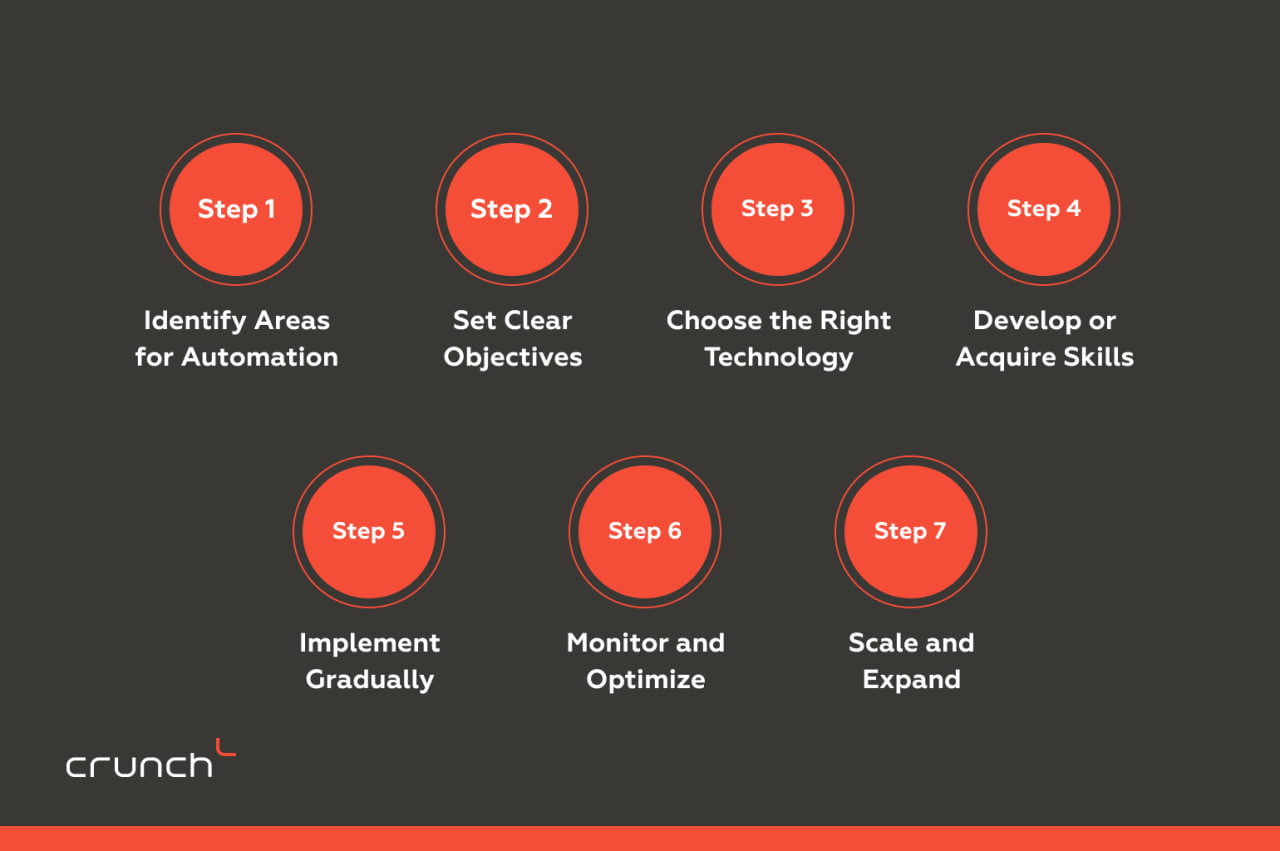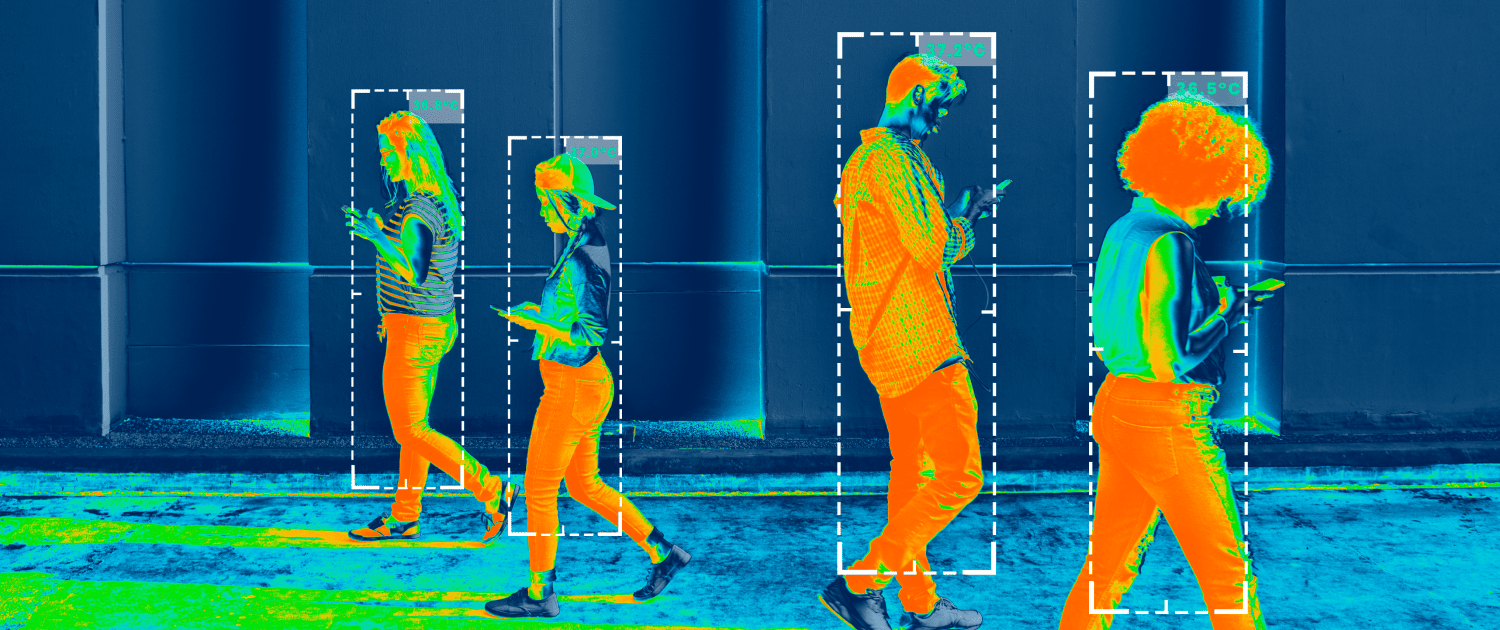
In a world where technology evolves at breakneck speed, AI and automation stand out as game changers. AI in automation makes it easier to work smart and cut costs. These technologies, especially AI process automation, help to make operations smooth and automate regular tasks. This move to intelligent automation helps companies stay ahead in a fast-changing market. And the shift towards AI business process automation leads to better efficiency and a stronger bottom line. Let’s see why AI and automation are not just fleeting tech trends, but essential for modern business success.
What Is AI Automation?
AI automation represents the fusion of AI technologies with traditional automation processes. This blend results in systems that not only operate independently but also assist in making decisions. Importantly, AI automation can take the form of both standalone systems and add-ons or enhancements to existing systems. Such an advancement is transforming the way industries and businesses function, enhancing their efficiency and driving new innovations. When integrating into new or existing frameworks, AI automation—spanning from AI business process automation to automation with AI—offers versatile solutions that cater to diverse operational needs. AI automation companies are at the forefront of this transformation, driving the integration of AI and automation in various sectors.
Is AI Synonymous with Automation?
AI and automation, while they often travel in the same lane, are not the same destination. AI is not synonymous with automation. Automation refers to machines or systems performing tasks without human intervention, typically involving repetitive, predefined actions. AI, or Artificial Intelligence, implies a higher level of complexity. It involves machines or systems performing tasks that usually require human intelligence. These tasks include learning, reasoning, problem-solving, perception, and language understanding. When you merge AI with automation, you get a system that’s not just efficient but also intelligent and adaptable.
How Can You Automate More with AI?
To take full advantage of AI in automation, start by pinpointing tasks where AI’s ability to analyze and learn from data can be most beneficial. For instance, AI can enhance customer service by learning from past interactions to provide more personalized responses. This approach is not just about automating tasks; it’s about making them more effective and intelligent. To maximize the benefits of AI-powered automation, collaborate with experienced AI automation companies or experts who can guide the integration of AI and automation into your business processes, ensuring a seamless and effective transformation.
What Are the Steps to Employ AI and Automation?
Integrating AI and automation into your business isn’t just a trend; it’s a key step to staying ahead in a rapidly changing market. This section breaks down the process into clear, straightforward steps, offering insights into making the most of these technologies.

Step 1: Identify Areas for Automation
Examine your business processes to find repetitive tasks. For example, a business might automate its email marketing, sending out personalized customer emails automatically.
Step 2: Set Clear Objectives
Determine what you hope to achieve with AI and automation, be it enhancing customer service, speeding up production, or cutting costs. A clear goal will guide your implementation strategy. For example, you might aim to use AI to streamline customer inquiries and improve response times.
Step 3: Choose the Right Technology
Do your homework and pick AI and automation tools that fit your business needs. Think about how well they work with your current systems and how easy they are to integrate into your current workflow. A small business might choose a user-friendly AI tool for social media marketing to better engage with its audience. For personalized guidance in selecting the right technology or model, even to validate the automation itself, you may consider reaching out to us. With our AI-powered tool designed to scale up B2B sales you can ensure you are on the right track with your automation journey.
Step 4: Develop or Acquire Skills
Make sure your team can effectively use these tools. Train your team or bring in new talent. For instance, a business might train its staff to use a new AI-driven analytics platform for better understanding customer behavior.
Step 5: Implement Gradually
Start small. Try out these technologies on a small scale first. This lets you learn and make changes without big risks. A business could begin by implementing an AI chatbot on its website to handle basic customer inquiries before expanding its use.
Step 6: Monitor and Optimize
Continuously assess the performance. For instance, a company could regularly review the effectiveness of its AI-driven inventory management system, making adjustments as needed for optimal stock levels.
Step 7: Scale and Expand
Once comfortable, broaden the use of AI and automation. After successful implementation in marketing, for example, you might then explore AI solutions for financial forecasting or logistics.
What Are Examples of AI Automation?
AI automation isn’t just a drop in the ocean of technology; it’s a tidal wave reshaping industry after industry. Below is a list of examples, starting with the most popular and moving towards lesser known yet innovative applications:
- Customer Service: AI chatbots and virtual assistants, like a well-oiled machine, are streamlining customer interactions, providing 24/7 support, and personalizing responses.
- Healthcare: In healthcare, AI automation help in many everyday ways. It makes keeping track of patient records easier and helps doctors choose the right treatments for each person. AI also plays a role in making healthcare more accessible and user-friendly for everyone.
- Finance: AI and automation in finance goes beyond simple number crunching. It’s changing the game in risk assessment, fraud detection, and providing personalized financial advice, serving as a trusted guide for financial decision-making.
- Retail: AI-powered automation acts like a shop assistant, personalizing shopping, managing stock, and changing supply chain logistics.
- Manufacturing: AI and automation are the new backbone of manufacturing, enhancing production efficiency, generative design, predictive maintenance, and quality control, making factories smarter than ever.
- Agriculture: Automation with AI is transforming agriculture, optimizing crop yields, and improving irrigation and soil health monitoring.
- Transportation: From self-driving cars to optimizing shipping routes, AI is steering the wheel in transportation, making travel and logistics safer and more efficient.
- Education: AI introduces personalized learning experiences and automates administrative tasks, transforming educational methods.
- Marketing: AI in automation analyzes consumer behavior for targeted marketing. It automates content creation for more effective campaigns.
- Energy Sector: AI and automation optimize energy use and manages renewable sources. It plays a key role in sustainable energy management.
- Legal Field: AI aids in legal research and document analysis. It streamlines case management, enhancing legal efficiency.
- Real Estate: AI automation transforms property valuation and customer searching. It simplifies property transactions and data handling.
- Space Exploration: AI-powered automation analyzes astronomical data and aids spacecraft navigation. It brings new insights into space exploration.
- Environmental Conservation: AI in automation monitors ecosystems and predicts climate impacts. It’s crucial in managing natural resources effectively.
- Food Industry: AI predicts food trends and automates preparation. It ensures quality control in food production.
- Entertainment: AI with automation personalize media content and automates creative processes. It’s reshaping entertainment experiences.
- Fashion: AI predicts trends and tailors shopping experiences. It alters fashion design and retail.
- Hospitality: AI and automation enhance guest services and streamlines booking. It modernizes hotel management and customer interaction.
- Cybersecurity: AI automation detects threats and secures data. It’s essential for digital protection and analysis.
- Art and Creativity: AI fosters artistic creation and music composition. It opens new avenues in creative expression.
- Sports: AI with automation analyze performance and optimizes training. It enriches sports experiences for players and fans.
- Urban Planning: AI-powered automation manages city traffic and enhances public safety. It’s key in developing smarter urban spaces.
What Advantages Does AI-Driven Automation Offer?
AI-driven automation is like giving your business a turbo boost. It’s all about making things quicker, smarter, and more efficient. Let’s explore the benefits.
Expense Reduction:
Implementing AI with automation can lead to significant cost savings. Automating routine tasks reduces the need for additional staff and minimizes human error. This approach helps to cut costs efficiently.
Digital Transformation:
AI plays a crucial role in moving businesses towards digital operations. It simplifies the use of online systems for different activities, boosting efficiency based on data analysis. With AI automation, businesses find their processes becoming more streamlined and efficient, thanks to smarter, data-focused methods.
Scalability and Integration:
AI allows businesses to handle increased workloads without needing more resources, efficiently managing fluctuating data volumes. This capability ensures businesses can grow without facing operational bottlenecks.
Customer Experience:
Automation with AI improve customer interactions by providing timely and personalized responses, enhancing customer satisfaction with its round-the-clock efficiency. This results in better customer relationships and loyalty.
Collaborative Efficiency:
AI automation isn’t just a solo act; it’s a duet with human intelligence. It takes on routine tasks, letting human creativity and strategic thinking shine. The combination of AI with human creativity and strategic thinking accelerates decision-making, optimizing business productivity.
What is the Functioning Mechanism of AI Automation Software?
To fully appreciate the capabilities of AI automation software in business, it is essential to understand its operational mechanism. This software utilizes complex algorithms and data processing to automate tasks and enhance decision-making. We will examine its two primary components: the foundation model and cloud services.
Foundation Model
The foundation of AI-powered automation software is built on machine learning algorithms. These algorithms learn from data, identifying patterns and making decisions based on that learning.
For example, in supply chain management, the software can analyze past sales and supply data to predict future inventory needs, helping businesses to order just the right amount of stock.
Cloud services
Cloud services are essential for the effective functioning of AI automation software. They provide the computing power and data storage that AI needs to process large amounts of information quickly and efficiently. In customer relationship management (CRM) systems, cloud-based AI can sift through massive amounts of customer data to identify trends, preferences, and potential areas for improvement in customer service.
To sum up, the Foundation Model is the core, using machine learning to analyze data and make decisions, constantly learning and adapting to improve its performance. In contrast, Cloud Services provide the necessary infrastructure, supplying the computing power and data storage AI needs to function efficiently.
Conclusion
To adopt AI and AI-powered automation means embracing a major change in handling daily tasks and solving complex problems. This technology, including AI process automation, helps simplify tasks and boost efficiency, leading to innovation across various sectors. For example, studies show that AI in automation can improve business productivity by up to 40%. Its application goes far beyond customer service and manufacturing, affecting areas like healthcare, urban planning, and environmental management.
One special thing about AI, especially in business, is how it keeps learning and getting better, giving solutions that fit new challenges. This step forward in AI and automation, led by AI automation companies, isn’t just a short-term thing. It’s a big change in how we use technology, leading to a smarter and more efficient future at work and in our daily lives.



![How Much Does It Cost to Build AI Solutions In 2025 [Ultimate Guide]](https://crunch.is/wp-content/uploads/2024/06/steve-johnson-1FD-E7Ioblw-unsplash-scaled.jpg)



